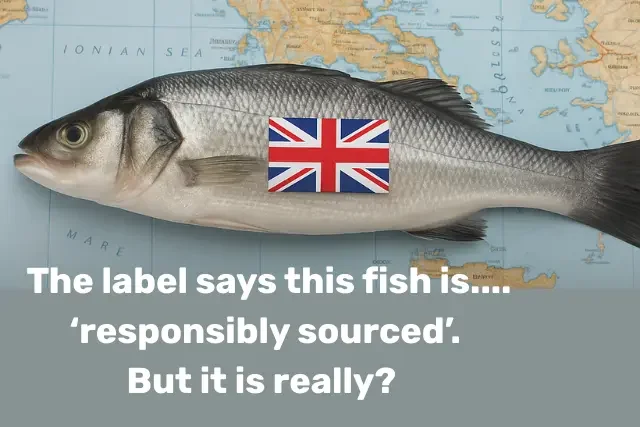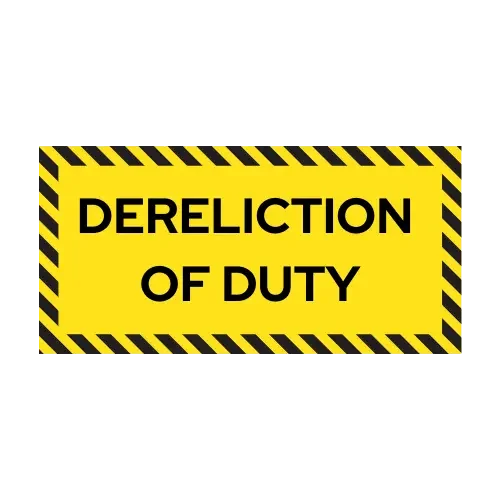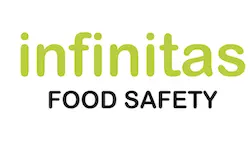
Misleading Information On Fish Labels: Truth About Seabass
Earlier in 2025, presenter Chris Packham called out the big supermarkets over their unethical and misleading information on fish labels. Misleading claims on food labels does not allow consumers to make informed choices about the environmental impacts of their supermarket choices.
When you can’t trust the food label and you can’t trust the seller… who can you trust when making purchasing decisions about food?
Table of Contents
Fish Labelled As 'Responsibly Sourced'
According to an investigation by the Guardian and DeSmog, sea bass and sea bream sold in UK supermarkets is linked to overfishing, food insecurity and unemployment in Senegal, West Africa. Yet, this fish, sold by Waitrose, Co-op, Lidl, Aldi, and Asda, is labelled as “responsibly sourced”. And the consumer has no idea of the darker side of this seafood product.
Chris Packham labelled the supermarkets irresponsible and called it a “dereliction of duty.” The Collins English dictionary defines this as “a deliberate or accidental failure to do what you should do as part of your job.”

Why Hidden Supply Chain Truths Matters
This isn’t just about one mislabelled fish — it’s about the integrity of our entire food labelling and traceability system. When big retailers play irresponsibly or immorally with claims on seafood labels about food sourcing, they are undermining several crucial factors:
① Consumer trust. Every unethical seafood label chips away at consumer confidence in what we eat. If supermarkets are duping customers by using misleading claims about sea bass or sea bream, what else are they hiding?
② Sustainability. As a customer, you think you’re making a responsible choice when buying ”responsibly sourced” fish. Yet, DeSmog revealed how UK supermarket sea bass connected to overfishing in Senegal has exposed a hidden supply chain truth that most consumers never get to see.
How would you feel if you were unknowingly supporting unethical practices that you would never knowingly back?
③ Your wallet. Even though you might be paying premium prices for what you believe is quality, local produce — you may be getting something entirely different.
So, if you can’t trust the big supermarkets – who can you trust when buying fish or other seafood? Try your local fishmonger.
What Your Local Fishmonger Brings to the Table
Walk into your local quality fishmonger, and you should get straight answers. Your fishmonger will likely tell you where the fish came from, when it was landed, whether it’s wild or farmed, what’s freshest today, and what offers the best value for your money.
They should know the boats that brought it in. Many buy directly from the quayside. There’s no corporate middleman obscuring the truth with clever packaging and marketing speak.
More importantly, they talk to you face-to-face and want you to come back. That relationship creates trust, and accountability. And no supermarket barcode can match that. A small independent business, like a fishmonger, depends on customer trust. They won’t want to risk their reputation with misleading labelling.
Behind the scenes, a good fishmonger will be working hard to maintain food safety standards — keeping detailed records, managing temperatures correctly, and ensuring full traceability.
The Hidden Cost of Cheaper SeaFood
Remember then, that supermarket fish might look like a bargain. But it may come with hidden costs. You’ll be paying for excessive packaging that ends up in landfill, and transport emissions from shipping fish halfway around the world. You may be paying for reduced safety and quality because the fish has been sitting around longer than was needed.
Your local fishmonger meanwhile, can portion seafood to order, offer cooking advice that actually works. He/she can also introduce you to cheaper local species that taste better than the expensive imports everyone thinks they want.
Three Simple Questions To Ask When Buying Fish
Next time you’re buying fish or any other seafood, ask these questions:
- Where was this fish or seafood caught?
- When was it landed?
- Is it wild or farmed?
If you get vague answers, corporate scripts, or the dreaded “I don’t know,” it’s time to find someone who actually knows their food product.
Behind The Marketing Curtain
This sea bass investigation reveals a much wider issue. We’re seeing the same patterns across meat, dairy, and eggs. Glossy packaging and clever marketing mask a growing disconnect between what we’re told and what’s actually true.
But here’s the encouraging part: independent businesses like your local fishmonger are still getting it right. They welcome questions because they’re proud of their food products. They’re the first to call out industry nonsense because their reputation depends on honesty.
In a world of corporate doublespeak and regulatory loopholes, that kind of straightforward dealing is worth supporting.
Your Next Move
Next time you walk past a fishmonger, don’t just keep walking. Go in. Ask what’s fresh, what’s local, what they’d recommend for dinner tonight. You’ll likely get better fish, better advice, and the satisfaction of supporting a small business that treats food — and customers — with respect.
And if you’re a fishmonger reading this, wondering how to make sure your back-of-house systems match the quality of your customer service, get in touch. We’ve developed a fishmonger compliance kit that will help you pass your food hygiene inspections with flying colours. It will help you achieve a 5 Food Hygiene Rating to build even stronger customer trust.
Because in the end, food safety and transparency aren’t just good business — they’re the foundation of everything you do.
Dr Julie Rasmussen
Further Posts You Might Like To Read
If you have questions about food safety, try our free food safety helpline. Get your questions answered within 24 – 48 hours by a food safety compliance expert.
Or find out more by reading our article: Free Food Safety Helpline | Expert Advice from Infinitas.
Other related posts:
Got a Food Safety Question? Ask an Expert – No Question Is Too Silly
Food Safety as a Competitive Advantage: How to Stand Out and Win Trust in 2026
